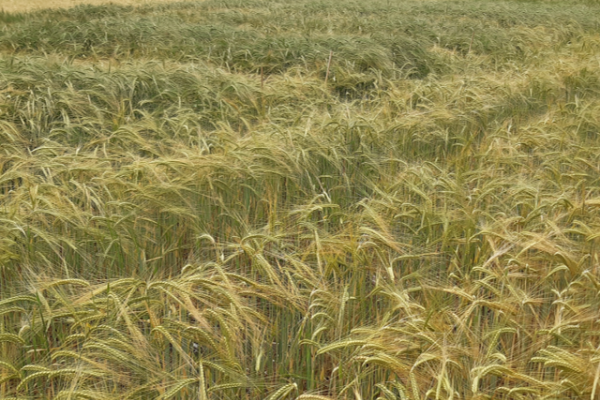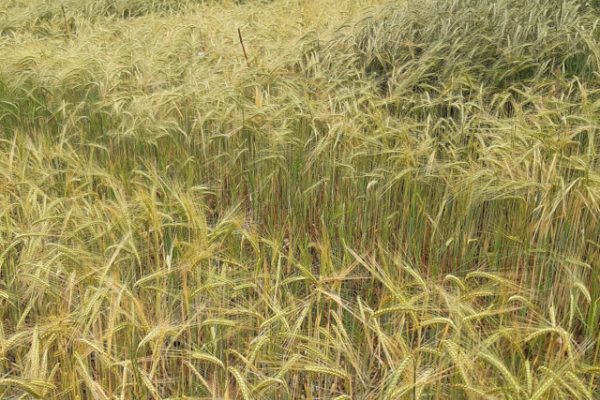Fertiliser Trials
CCm fertilisers has undergone 7 years of field trials, consistently demonstrating how CCm Growth produces equivalent yield, even with reduced fertiliser application as well as many other proven benefits. CCm will continue to conduct trials, ensuring the most accurate and up to date research on CCm Growth in order to continuously improve formulations.
2015
Assessing the high nitrogen content CCm fertiliser on Grassland and Arable. Output: Equivalent crop yield vs mineral alternative and improved chlorophyll index with CCm
2016
Building upon the academic trials from Harper Adams and Royal Agricultural College, the Velcourt trials were a step into the commercial agronomy sector. CCm began to introduce new NPK formulations still focusing on crop yield. Equivalence with mineral alternatives achieved.
Velcourt Trials have continued each subsequent year and will continue to do so.
P3 Group at Sheffield carried out focused pot trials to determine how CCmGrowth improves soil health. This study showed how the CCmGrowth® increased soil organic matter (SOM), increased water retention (30-60%), increased length of wilt time on crops, increased bio flora and fauna and increased microorganism families.
2017
Continued arable crop yield studies were completed with market equivalence achieved for Yr3. Spreading trials were undertaken to determine the distance that CCmGrowth can be spread. Output: Yield equivalence achieved. 30m spreading achieved using conventional farm spreading equipment.
2018
Further spreading trials were undertaken to determine the improved spreading co-efficient using CCmGrowth®. Output: 34m achieved with 10-15% CV.
2021
Further spreading trials continued to demonstrate increased range of up to 36m with a 10-15%CV. 2021 saw CCm's first season growing potato with equivalent crop yield generated.
Following previous trials, CCm began a collaboration with Cranfield University to carry out field trials at Luton Hoo Estate. The trials, measured crop yield on Winter Wheat and Barley but also began to measure increases in soil carbon, crop root structure, nutrient application rates, emissions, leaching, run-off and soil erosion. Field trials indicated that up to 50% less CCm nutrients is required is required to achieve equivalent crop yield with a conventional mineral application.
Outputs: Equivalent crop yield with reduced nutrient application. Run-off reduced by 80%. Ammonia emissions reduced by 80% (vs Urea). Trials being extended for upto 4 seasons to build data on CCm Nutrient Use Efficiency.
Velcourt trials demonstrate that 20% less nutrient levels are needed in the fertiliser to produce crop yield equivalence vs conventional alternatives. Biochar integrated into trial fertiliser formulations. CCm fertiliser produces 100% greater yield than conventional digestate applications. (11t yield/ha vs 5t yield/ha). Continued yield equivalence with mineral alternatives.
Trials with PepsiCo, NIAB and WWF demonstrated a 10% decrease in nutrients in the fertiliser are able to produce the same amount of yield as conventional fertilisers.
On-site trials into volatilisation and leaching levels of CCm Growth have been undertaken. Results show a reduced amount of nutrient losses from these processes, at all stages of the experiment. These initial trials prove very promising with respect to short, medium, and long term nutrient release which could reduce expenditure, pollution, and labour costs for farmers and land managers. The data demonstrates evidence for increased retention of nutrients in CCm pellets compared to a competitor pellet and pure ammonium nitrate. Further studies will be done in order to determine accurate amounts of nitrogen breakdown during the leaching trials and CCm will work with Cranfield University in order to perform these experiments.
2022 and beyond
Future studies will continue to build on existing data for crop yield, soil carbon, erosion and emissions from CCm fertiliser but the core focus will be developing robust data sets around the Nutrient Use Efficiency of CCm's fertiliser. this will validate initial data suggesting significant nutrient application reductions will achieve crop equivalence. For 2022 growing season, CCm is deploying more than 500t of NPK fertiliser to a range of agri stakeholders to trial on farm using in-house techniques and equipment.



